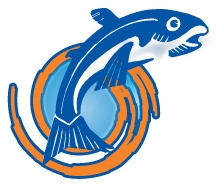FSWE\EE — English Expression Study Suggestions
The State Department's information about the FSWE clearly states what this section of the exam will entail:
This section of the examination measures knowledge of correct grammar, organization, spelling and punctuation, which would be required for writing reports and for editing the written work of others. In addition, it tests the ability to express ideas clearly and accurately, to correct sentences, and to read with comprehension.Growing up, English class was frequently derided. After all, we already spoke English, didn't we? Why must we learn to diagram sentences, or struggle with gerunds or participles? [skip the monologue]
None of the explanations given were ever satisfactory. And why is this? Because we as Americans have collectively forgotten why we should learn the fine mechanics of this crazy patchwork quilt of a language.
Many will guess that it is to help them write better, should they ever choose or have need to write. Some students might suggest that the spelling and vocabulary portions could enable them to find better jobs. Both are true to some extent, but they for the most part are trickle-down effects, and do not address the primary historical reasons for teaching English.
The first reason is self-evident: to communicate and to comprehend with precision.
The second has been obscured by time and by the nature of our society. Prior to the Industrial Revolution, a "classical education" included Greek and/or Latin, along with perhaps French and/or German, each of which enjoyed being the lingua franca for significant periods of time.
The Classical languages helped us to understand the foundation of our language, and the Romance languages enabled us to communicate with the rest of the world.
One needed a firm understanding of the intricacies of the "mother tongue" so as to better understand the differences and similarities encountered during the acquisition of the "foreign language".
Up until the early Twentieth Century, the isolationist attitude of America lulled it's citizens into becoming increasingly monolinguistic. Although we have become more sensitive to the needs of local non-English speakers, the current status of English as "the" lingua franca has further entrenched us into linguistic isolation.
As diplomats, we need to communicate "clearly and accurately", and we will be required to become fluent in multiple languages. We will not be taught English. Thus, this exam 'filters' for candidates who already show a remarkable understanding of and ability in the English language.
[Finish Monologue]
Coincidentally, excelling in this section of the exam can greatly raise one's overall score with a minimum amount of preparation. By contrast, the JK section covers a vast array of topics (for which it is almost impossible to adequately 'study'); likewise, the BIO section is enigmatic, almost nebulous (although certain preparations can certainly help).
"The Elements of Style", by Strunk and Williams, is frequently recommended to help prepare for the FSWE. Reviewing the fundamentals of grammar are indeed necessary, but without some real world practice, one could still fall short.
English-Test.net is for English speakers of all levels, basic, intermediate, advance, and has something useful and challenging for everyone!
If you are a naturalized citizen, if English is your second language, or if you are curious how and why grammar works the way it does, Englishforums provides a great place to discuss and to learn.
If you want to improve your vocabulary, learn some of the history of the development of the English language, and discover how we got some of the oddball words we use everyday, Worldwide Words is a great jumping-off point.
Finally, if you are interested in why many people around the world find English so fascinating and necessary to learn, take a look at this article by Antimoon.
Best of Luck!
Editfish
